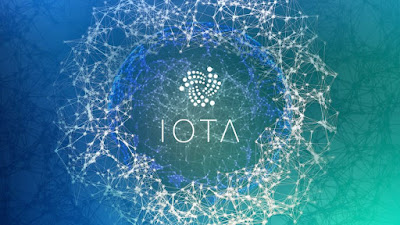IOTA announces partnership with TradeMark East Africa
To create a more cost-efficient and transparent supply chain, the renowned organization TradeMark East Africa has entered into a strategic partnership with the IOTA Foundation.
As part of the partnership, the IOTA Foundation will develop an infrastructure for the exchange of data between governments and companies.
The IOTA Foundation announced a strategic partnership with TradeMark East Africa (TMEA) yesterday. The goal of the partnership is to support TMEA in its vision for improving trade through the use of IOTA’s Distributed Ledger technology. Through the partnership, TMEA will conduct various initiatives to leverage the IOTA Tangle. Via a blog post, the IOTA Foundation stated that the partnership came about after a “long due diligence process and several idea generation meetings”.
The initiatives are designed to improve data management and collaboration along the trade corridors in East Africa and to create new ways to ensure that digital change benefits both large companies and smaller retailers. In addition, the use of the IOTA Tangle is expected to increase the global competitiveness of East African products by providing more cost-effective and transparent supply chains for the end consumer.
To this end, the TMEA is working with more than eight countries, institutions, national governments, the private sector and civil society organizations from East Africa. The goal of TMEA and the strategic partnership is to increase trade by improving the trading system in East Africa, leading to an improved economy and poverty reduction. The first area on which the partnership focuses is the exchange of data and trade certificates across national borders between government agencies and traders.
Building a transparent supply chain with the IOTA Tangle
As the IOTA Foundation states, cross-border trade in Africa is dominated by paper documents and manual processes. There is often a high level of mistrust between the issuer of a document in the exporting country and the customs authority of the importing country during verification, which leads to inefficiencies and delays.
The Tangle aims to solve this problem and provide a paperless and more efficient infrastructure. As the IOTA Foundation points out, the IOTA Tangle is the ideal technology for this:
Furthermore, using the Tangle for data transactions is feeless, it does not require any actor to buy tokens and it avoids potential concerns about the regulation of cryptocurrencies. There are no miners or private actors holding the key to the kingdom and each actor can ultimately decide to share their own data with anyone without asking others for permission or paying a fee.
The vision of the partnership is to build a secure and reliable supply chain infrastructure through the IOTA Tangle that can store and transmit trade certificates, events, and specifications of manufactured products and food supply chains in a trusted and secure manner.
In parallel with TMEA, the IOTA Foundation will promote an ecosystem in East Africa that will bring companies, start-ups, and developers in touch with IOTA’s technology who want to use the technology for trade and supply chain purposes. As part of this, the IOTA Foundation will train four local Kenyan developers. The goal is to build a talent pool in the region that will give local people access to IOTA innovations and thereby drive further use cases.
Alban Odhiambo, Senior Director, Trade Environment, TradeMark East Africa said regarding the partnership with the IOTA Foundation:
Public infrastructure must avoid any potential to monopolize the control or the data with a few private actors – and give value to all actors independent of size. This partnership provides us access to a technology where we can test the value of decentralized data management and have control mechanisms of the underlying infrastructure. Equally important, it provides training of staff and local developers in East Africa.
Jens Lund-Nielsen, Head of Supply Chain and Global Trade at the IOTA Foundation added:
One of the most compelling features is the low-cost approach for such high-value public infrastructure. Not only are the building costs low due to the open-source, feeless nature of the IOTA technology, but it is also an uncomplicated addition to the existing infrastructure. No miners or other fees exist on the transactions, so long-term costs are predictable, low and well-suited for the volumes of international trade.

0 Comments